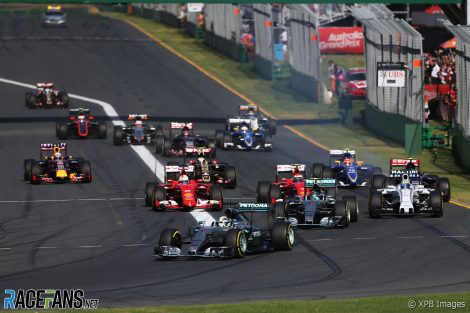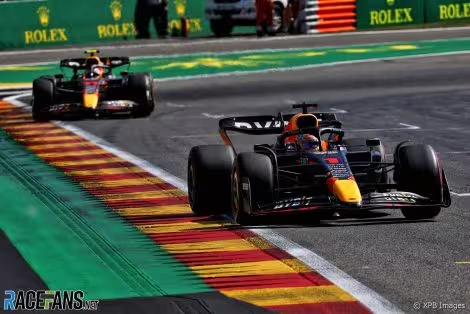A slumbering giant has reawakened.
Mercedes, who laid waste to the competition in Formula 1 from 2014 to 2016, then continued to win almost as they pleased for years after, looked like a spent force for much of the past two-and-a-half years.
Just 10 days ago, they had only won once since the end of 2021. But back-to-back victories in the last two grands prix have shown the Brackley squad are back among the front-runners.
George Russell’s Austrian Grand Prix victory was assisted by Max Verstappen and Lando Norris tangling. But the silver-and-black arrows put on a show of strength at Silverstone, locking out the front row of the grid for the first time since that against-the-run-of-play victory late in 2022.
Mercedes’ double triumph came just as Red Bull looked poised to surpass their all-time wins tally. Verstappen scored Red Bull’s 120th grand prix victory in Spain as F1 began a run of events on three consecutive weekends. Since the final race of 2021 they had out-scored Mercedes by 55 wins to one.
The bitter fight between the two teams that season had almost begun to fade in the memory. But Russell and Lewis Hamilton have put Mercedes back on top, nudging them up to 127 wins, and there now seems a realistic possibility they can prevent Red Bull overtaking them.
Two teams lie ahead of them: McLaren on 184 wins and Ferrari with 245 – almost as many as the two rivals combined.
Advert | Become a RaceFans supporter and
It bears pointing out we are not comparing like with like here. Red Bull have started 76 more rounds than Mercedes, so they had a head start. This is better reflected by comparing their winning rates.

In Mercedes’ case, they left their first race at Reims in France, 70 years ago to the day last Thursday, having won on their debut, and therefore temporarily have a 100% winning rate.
That fell sharply when they returned to F1 in 2010 and won nothing for the first two years. Meanwhile Red Bull were piling up wins and surpassed Mercedes’ winning rate at the 2011 Japanese Grand Prix, notwithstanding the fact they didn’t win that race.
But Mercedes’ immediate mastery of the V6 hybrid turbo regulations which arrived in 2014 soon propelled them back ahead. Hamilton’s victory in the first race of 2015 edged them past Red Bull. However since the pair went toe-to-toe in 2021, Red Bull have narrowed the gap rapidly:
Advert | Become a…
Click Here to Read the Full Original Article at RaceFans…

